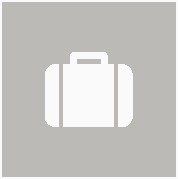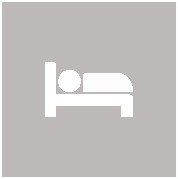SAFARI ESSENTIALS
Your bags are packed and you’re ready to go, but are you really? Here is some information that will help you get the most out of your safari.
You can Download pdf files of all this information, together with our brochure, from the "Downloads" page.

Essentials
DO NOT LEAVE HOME WITHOUT THE ITEMS LISTED BELOW, not having them will affect your enjoyment:
Head torch (one per person!).
Preferably with rechargeable batteries. Lighting in the tents is much dimmer than what you are used to back home and trying to find stuff in your bag at 5 a.m. is just a lot easier with one of these. It will also be invaluable when we arrive back to camp after sunset for getting all your goodies together in the vehicle or just reading your book or Kindle before going to bed.
Binoculars!
You can share these between a couple but one per person is preferable if you can. Binoculars greatly enhance your viewing experience for all aspects of wildlife and birdlife viewing. Not having binoculars or having to borrow from someone else may mean missing out on that once-in-a-lifetime sighting.
Camera
With spare batteries & memory cards.
The camera on your phone will do, especially if you have a zoom attachment (and the phone might not be much good for anything else – cell/mobile signals are patchy at best, and don’t expect WiFi!). You’ll be surprised to know that not everyone takes a camera when they go on safari. Some people like to just be with the animal in the present moment without worrying about getting the best photo. We do recommend that people get out from behind their cameras at least some of the time. It is a different feeling when you are sitting with the animal rather than trying to capture a memory for later. The two most popular cameras that people bring are DSLR’s . They are great if you want to bring different lenses. These cameras are generally for people who are more serious about photography. There is a relatively new kind of camera called a mirrorless. The advantage is that they are lighter than the DSLR and still allow you to have different lenses. Another option is to buy the smallest all-in-one camera with the largest magnification available. These are great cameras. They are lightweight, not expensive, and take great shots.
A good attitude.
This will help you deal with the many trials and tribulations that travel in Africa can throw your way. Your vehicle may get stuck in the sand or mud, you might be forced to take a long detour because of a broken bridge or any one of a million other things that can go wrong on a journey of this nature. Having a good attitude will help you to wear a wry smile and continue getting the most out of your journey!
Oh, and clothing, bring some of that too! We’ve added a suggested list under “clothing”!

Accommodation and Facilities
Depending on your Safari of choice, you will stay for part (or all) of your time in:
City Hotels, Guesthouses, and B&B
These are situated in or near main cities or airports and are often used for overnight stays before heading on towards your lodge/camp, or as a base for day excursions.
Game Lodges
Lodges are usually situated in or near game reserves or remote wild areas. You will find all levels of comfort on offer here depending on your needs and budget, from no-frills to 5-star deluxe.
Bush Camps
These small camps are often situated in very remote areas, resulting in the camp being partially or even totally broken down and rebuilt each year.
Mobile Tented Camps
We will stay either in designated camping areas (with or without their own facilities) or will camp “wild”. In the latter case, or where the camp ground has no facilities, we will use bucket showers and portable toilets. The Bow or Wilderness tent is used for scheduled and private Safaris, sizes (3mx3m). All bedding is supplied and includes camp bed, mattress, duvet, blankets, pillows, towels, bedside table and paraffin lamp.

Other
Vehicles
Where possible, depending on local regulations, number of guests and availability, we will use open vehicles (see image). Alternatives include 4x4 “double cab” utility vehicles, for example Mazda BT-50, or (for larger groups) a small mini-bus, for example Hyundai H-1.
Cuisine
Depending upon your choice of safari, your accommodation may offer cafeteria or restaurant facilities. Where these are not available, meals will be prepared by your guide along with his trusty helper and served in the open. Please be sure to advise us of any dietary requirements when booking (we will ask, but just in case). Please do not expect fine dining when camping. Meals will be plain, wholesome and attractive.
Soft drinks, mineral water, beer and wine are included.
Electricity/Charging Facilities
Our vehicles are equipped with a 12V cigarette lighter socket, (car chargers for equipment are not provided)
Equipment will only be charged while the vehicles are on game drives and moving and charging facilities are limited and shared.
Please note that there will be no electricity when camping, and not always in lodges and “permanent” bush camps.
Luggage
Each person is allowed one medium sized suitcase, and one airline type handbag. Soft bags are recommended.
Mobile Phone Reception
There is no mobile phone reception in any of the Reserves and Parks. However there is reception in and around the larger villages of Maun, Kasane, Livingstone and Victoria falls.
CLOTHING AND INCIDENTALS LIST
- Light rugged items of the jeans/slacks variety (Notes 1, 2, 3)
- Shorts (Notes 1, 2, 3)
- T shirts & cool tops (Notes 1, 2, 3)
- Long sleeve shirt (Notes 1, 2, 3)
- Comfortable flat shoes (Note 5)
- Light fleece/jacket (Note 3)
- Underwear (Note 4)
- Sun hat (Note 3)
- Sunglasses
- Sunscreen, factor 30+ (or your personally preferred strength)
- Toiletries
- Face cloth
- Binoculars
- Camera with spare batteries & memory cards
- Torch (preferably a head torch) and spare batteries
- Note pad & pen
- Please note winter nights can be deceptively cold so bring warm clothing and possibly a tracksuit in which to sleep,
- Good insect repellent (we do provide an aerosol spray for your night-time comfort).
Notes:
1. You may wish to purchase garments with built-in sun and insect protection, though this is a personal choice, not a requirement.
2. Clothing should be quick drying (denim is not ideal!).
3. Clothing, especially if on a walking safari, should be neutral in colour (beige, browns, greens) NOT camouflage as this is frowned upon in many Southern African countries (and is illegal in Zimbabwe). Ladies – this does apply to makeup as well.
4. Ladies – we will be travelling on some bumpy roads, and some safari trails are exceptionally bumpy! A sports bra or similar is advised.
5. Shoes should be closed (not sandals or “flip-flops”) but walking/hiking boots are not necessary. Sneakers/trainers are perfectly adequate.
BEFORE LEAVING
ENTRY REQUIREMENTS: NOTE the advice listed below should be taken as advisory only. All clients should consult the appropriate embassy in their home country before travelling.
COVID 19
While covid is undoubtedly not the problem it was, please do check for covid entry rules, and for rules in place in general day to day life, in the countries you will be visiting.
Chui Safaris ensure that all accommodation is cleaned to the highest standard.
Botswana
All visitors entering Botswana must hold a passport that is valid for at least 6 months; have outgoing travel documents and enough funds to finance their stay.
Passport holders from the following countries can obtain a 90-day tourist visa on entry:
All Commonwealth members, Austria, Belgium, Denmark, Germany, Finland, France, Greece, Italy, Liechtenstein, Luxembourg, Namibia, Netherlands, Norway, Pakistan, Republic of Ireland, Samoa, San Marino, Sweden, Switzerland, United States of America, Uruguay and Yugoslavia.
Nationals of all other countries are required to obtain a visa before travelling.
Namibia
All visitors entering Namibia must have:
A passport valid for at least 6 months beyond the intended stay and having enough pages for entry and exit stamps. All visitors must also have a valid return ticket.
Passport holders from the following countries can obtain a 90-day tourist visa on entry:
Angola, Armenia, Australia, Azerbaijan, Belarus, Brazil, Canada, European Union (1), Hong Kong, Iceland, Japan, Lichtenstein, Malaysia, New Zealand, Norway, Russian Federation, Singapore, Switzerland, Ukraine and United States of America.
Note 1: Except:
Bulgaria, Croatia, Cyprus, Czechia, Estonia, Greece, Hungary, Latvia, Lithuania, Malta, Poland, Romania, Slovakia and Slovenia
Nationals of all other countries are required to obtain a visa before travelling.
South Africa
All visitors entering South Africa must have:
A passport valid for at least 6 months with at least one blank page for endorsements, a valid visa (if required – see below), enough funds to pay for day-to-day expenses during their stay, a return or onward ticket. A Yellow fever certificate is required if their journey starts or entails passing through the yellow fever belt of Africa or South America.
Passport holders from the following countries can obtain a 90-day tourist visa on entry:
Argentina, Australia, Austria, Belgium, Botswana, Brazil, Canada, Chile, Czech Republic, Denmark, Ecuador, Finland, France, Germany, Greece, Iceland, Ireland, Israel, Italy, Jamaica, Japan, Liechtenstein, Luxemburg, Malta , Monaco, Netherlands, Norway , Panama , Paraguay , Portugal, Russian Federation , San Marino, Singapore, Spain, St Vincent & the Grenadines, Sweden, Switzerland, Trinidad & Tobago, United Kingdom of Great Britain and Northern Ireland, British Islands Bailiwick of Guernsey and Jersey, Isle of Man, British Oversees Territories, United States of America, Uruguay and Venezuela
Nationals of all other countries are required to obtain a visa before travelling.
Health
Malaria is prevalent in Southern Africa so that prior to departure we urge you to consult your physician as to the appropriate anti-malaria tablets.
You must be in good health to undertake a safari. Consult your personal Physician or Doctor as to the advisability of undertaking a safari if in doubt, we visit remote areas with little to no medical facilities.
Though water in urban areas and large villages is generally safe to drink, we provide bottled water (still or sparkling) for drinking and washing of food. In the hot summer months, it is important to drink fluids to avoid dehydration.
In many countries it is recommended that travellers to Southern Africa consider vaccinations for the following:
Diphtheria, Tetanus, Hepatitis A & B, Polio, Tuberculosis, Typhoid and Yellow fever.
Please consult your personal Physician or Doctor.
Insurance – Personal and Medical
Clients are strongly recommended to ensure that they are covered by insurance, relative to medical costs and personal accident prior to departure from their country of domicile.
Language
The official language in Botswana, Namibia and South Africa is English. In Botswana, the national language is Setswana. In both South Africa and Namibia, Afrikaans is widely spoken and functions as the lingua franca.
Travel documents
The onus is upon the client and/or Travel Agent to ensure that Passports, Visas, Re-entry visas and Health documents, as required are valid prior to the commencement of your safari.
